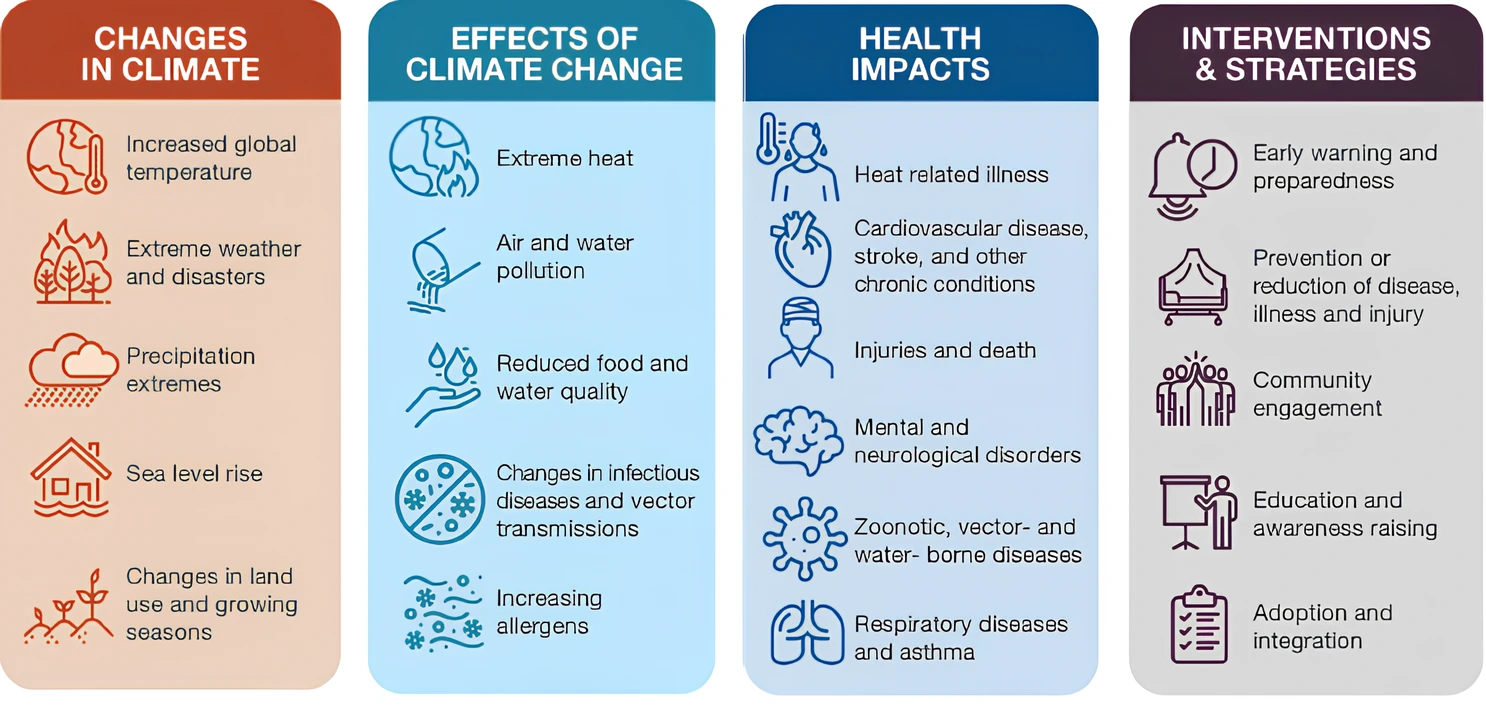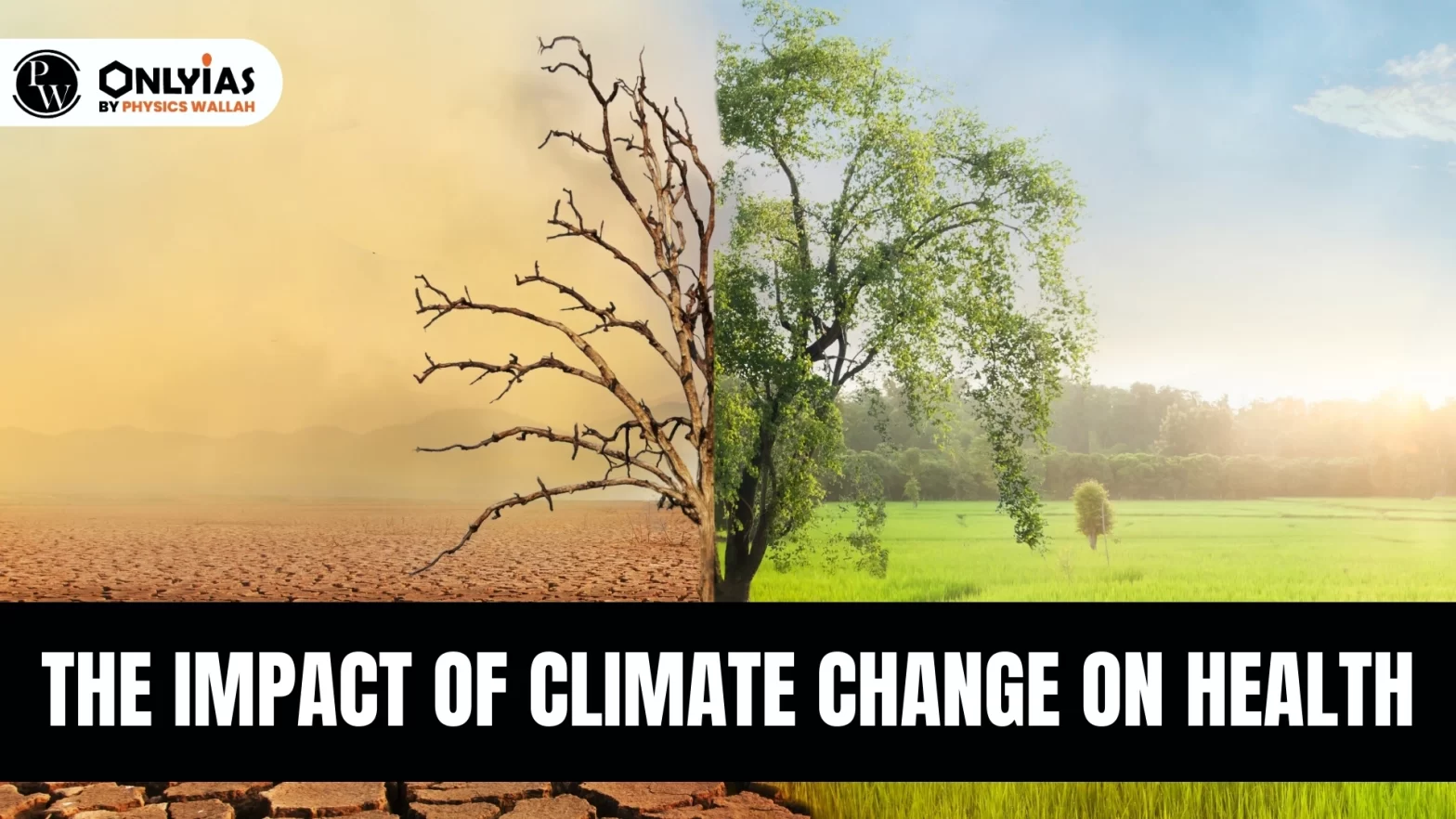Context:
| Relevancy for Prelims: COP28.
Relevancy for Mains: Impact of Climate Change on Health, Associated Challenges and the Way Forward. |
Impact of Climate Change on Health: Heatwaves, Cyclones, and Rising Temperatures
- Health Impacts: Climate change directly causes more sickness and death.
- It also indirectly affects nutrition, reduces working hours, and increases stress.
- Rising Temperatures: The global agreement aimed to limit the rise in temperature to 1.5°C, but in 2023, the world experienced the highest temperatures ever recorded.
- Climate Induced-Stress: More extreme climate events like heat waves, cyclones, and floods are expected, affecting food security, livelihoods, and health.
India’s Double Health Burden: Climate Change, Urbanization, and Emerging Health Challenges
- Impact of Climate Change on Health: India already faces health challenges from both communicable and non-communicable diseases. Climate change could worsen this by influencing the growth of disease-carrying vectors (like mosquitoes) and changing infection patterns.
- Non-Communicable Diseases: Climate change can impact non-communicable diseases (like kidney injuries and pulmonary diseases).
- Mental Health: Climate change can impact mental health (like depression, aggravated by stress generated by the change in weather conditions, and Post Traumatic Stress Disorder invariably accompany a climate emergency).
- These are rarely recognised in India, much less addressed.
- Urbanization Challenges: India’s rapid, unplanned urbanization contributes to health challenges.
- Urban areas, with their lack of green spaces and heat-retaining structures, face the worst effects.
- Urban areas suffer from the “urban heat island effect,” making them warmer, especially at night.
- Epidemics commonly occur after floods, but extended warm periods also promote the proliferation of water and food-borne pathogens and diseases.

Way Forward: Understanding to Action in Mitigating Climate Change’s Impact on Health
- Better Understanding: Understanding of climate change impacts is crucial for taking action.
- Better Planning: Social support, improved health services, and upstream interventions like better urban planning are necessary to reduce the impact.
- Action at all Levels: Addressing climate change’s impact on health requires action at global, regional, and local levels.
- Researchers must provide policy options, and governments need to decide and act on these options.
- National, State, and local governments have to decide to act on the policy options that have been generated by research.
Conclusion:
India has to recognise climate change and its impact on health as a problem that can be and needs to be addressed. Meaningful change in dealing with climate change and its impact on health will happen when there is a collective effort involving problem understanding, policy options, and political decision- making.
![]() 22 Nov 2023
22 Nov 2023


